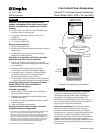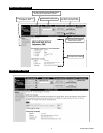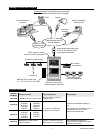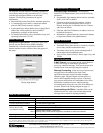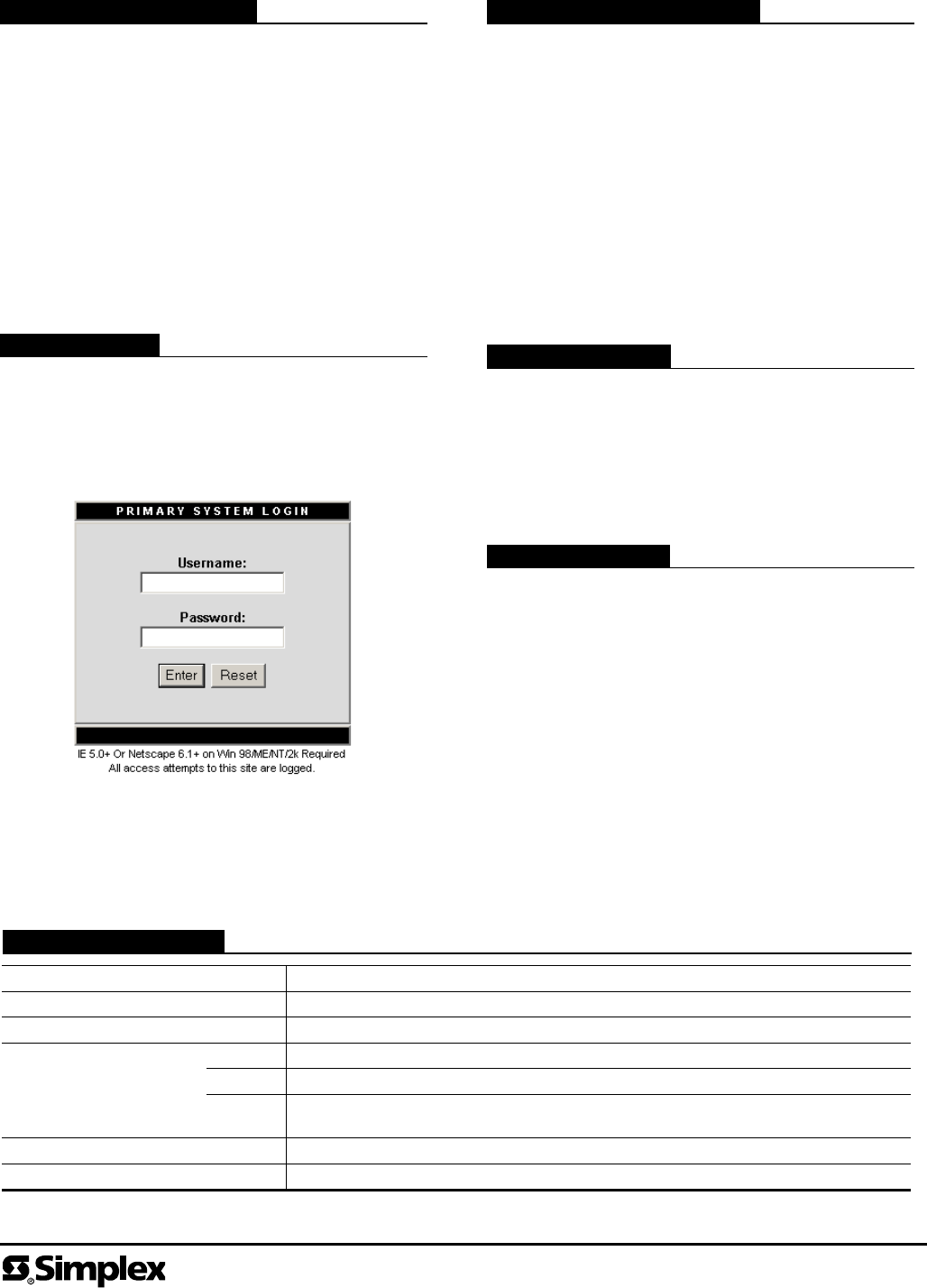
Connection Requirements
The SafeLINC Internet interface is normally installed into
a local facility network using conventional CAT 5 wiring
(or better) and configured similar to an individual
computer. The following summarizes the typical
requirements:
x Mount behind security firewalls for maximum protection
x To automatically send e-mails, a simple mail transfer
protocol (SMTP) mail account is required
x Each module has a unique Media Access Control (MAC)
address that will be required by the local MIS/IT
department to configure on the network
x For detailed information, refer to Installation, Setup, and
Operating Instructions 579-349.
Access Security
Anonymous Login Screen. The primary login screen
(below) does not describe the available connection.
Unauthorized visitors that might find the SafeLINC
Internet interface location would not know the purpose of
the screen.
Primary Login Screen
Access Security (Continued)
Selectable Login Parameters. The designated
SafeLINC FPII Administrator(s) can select the following
parameters:
x Programmable login attempts before lockout; selectable
from 1 to 20 with 3 as default
x Following an unsuccessful login attempt, a lockout
period is in effect and during this time no access is
allowed; lockout time is selectable from 0 to 24 hours,
with 1 hour as default
x If desired, individual IP addresses or address series can
be blocked from access
x Information is gathered about any unsuccessful attempt
to login and e-mailed to the administrator(s)
Report Generation
The following reports are available:
x TrueAlarm sensor status reports for sensitivity selection,
device status, and dirt accumulation status
x TrueAlarm sensor service reports including detail of
current status and recorded peak status
x Logs for: Fire Alarm, Priority 2 Alarm, Supervisory, and
Trouble
E-Mail Notification
E-Mail Feature. User accounts include e-mail addresses
to allow the receipt of automatically generated or
previously scheduled messages. Each user account can be
selected for the event message categories required.
Message Forwarding. At the receiving e-mail account,
messages can be forwarded by the local e-mail
application. Messages can be forwarded to another
computer, pager, Personal Digital Assistant (PDA), or
other e-mail compatible message receiver. If desired, a
user account could include an e-mail address list to allow
distribution to multiple receivers without requiring
forwarding and by using only one of the 20 available user
accounts. (Refer to the message diagram on page 3.)
Synchronizing with PDAs. Compatible PDAs can be
synchronized to a PC with a user account and pertinent
messages can be stored for message portability.
Tyco, TrueAlarm, SafeLINC, Simplex, and the Simplex logo are trademarks of Tyco International Services AG or its affiliates in the U.S. and/or other countries. Microsoft and
Windows are trademarks of Microsoft Corporation in the U.S. and other countries.
Compatible PC Operating Systems Windows
®
98, ME, NT, and 2000
Voltage Range 18 to 33 VDC, supplied from the host fire alarm control panel
Current, Supervisory and Alarm 115 mA maximum @ 24 VDC
LED 1 Ethernet link status indicator, green LED
LED 2 Ethernet link activity indicator, red LED
Module Status LEDs
(for setup and service)
LED 3
Detailed status indicator, yellow LED;
blinking codes provide internal diagnostics and details on external connections
Operating Temperature Range 32° to 120°F (0° to 49° C)
Operating Humidity Range Up to 93% RH, non-condensing @ 90° F (32° C) maximum
Tyco Safety Products Westminster • Westminster, MA • 01441-0001 • USA S4100-0028-2 9/2003
www.tycosafetyproducts-usa-wm.com
© 2003 Tyco Safety Products Westminster. All rights reserved. All specifications and other information shown were current as of document revision date and are subject to change without notice.
Module Specifications



